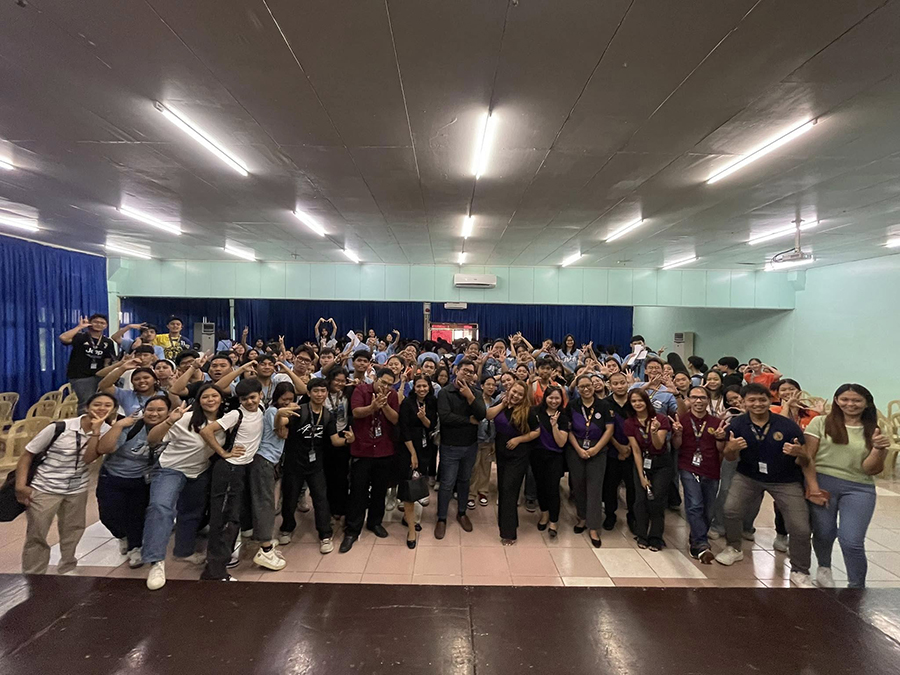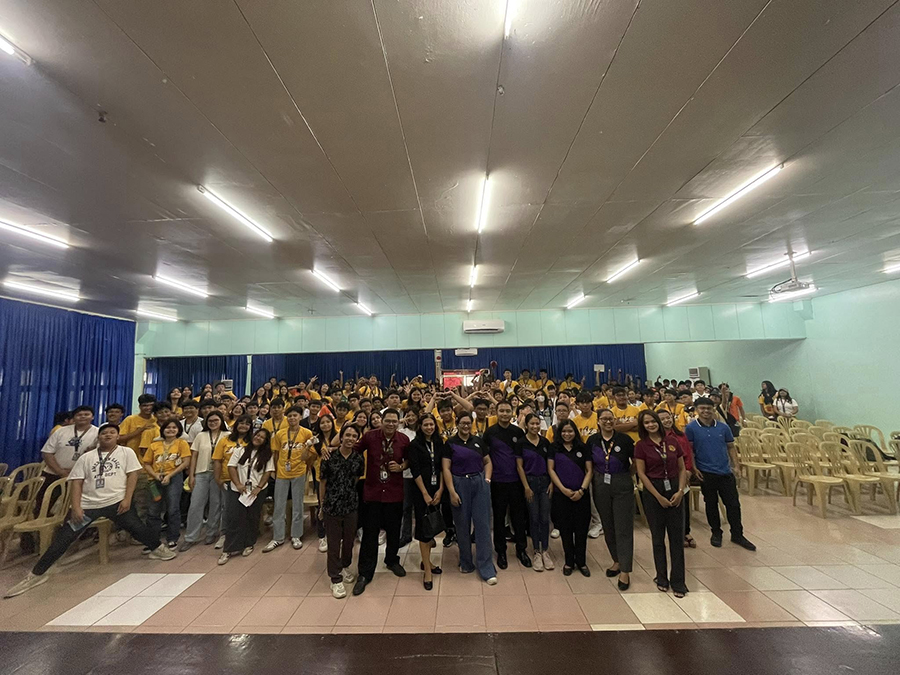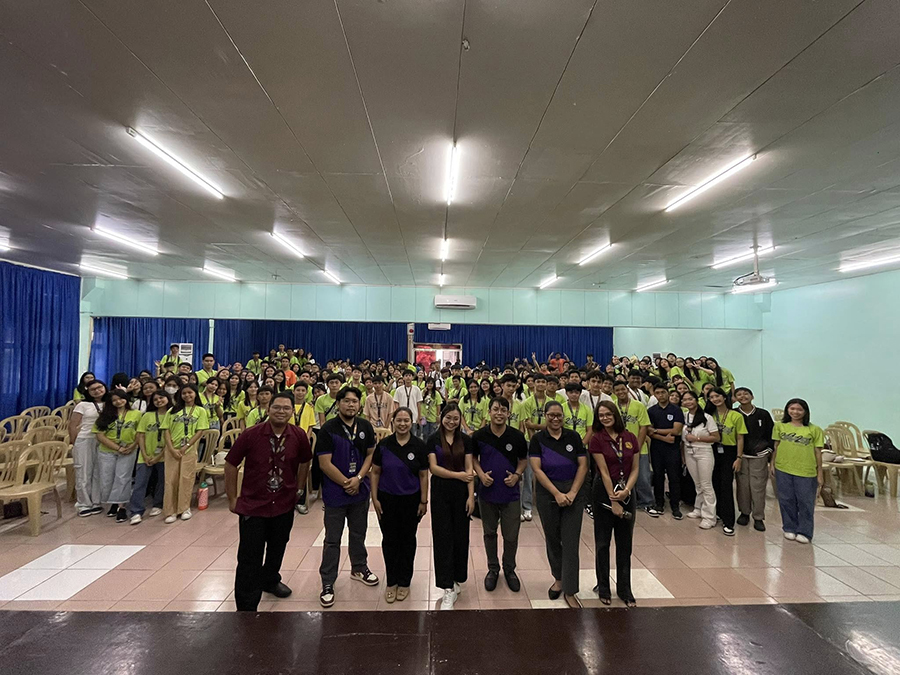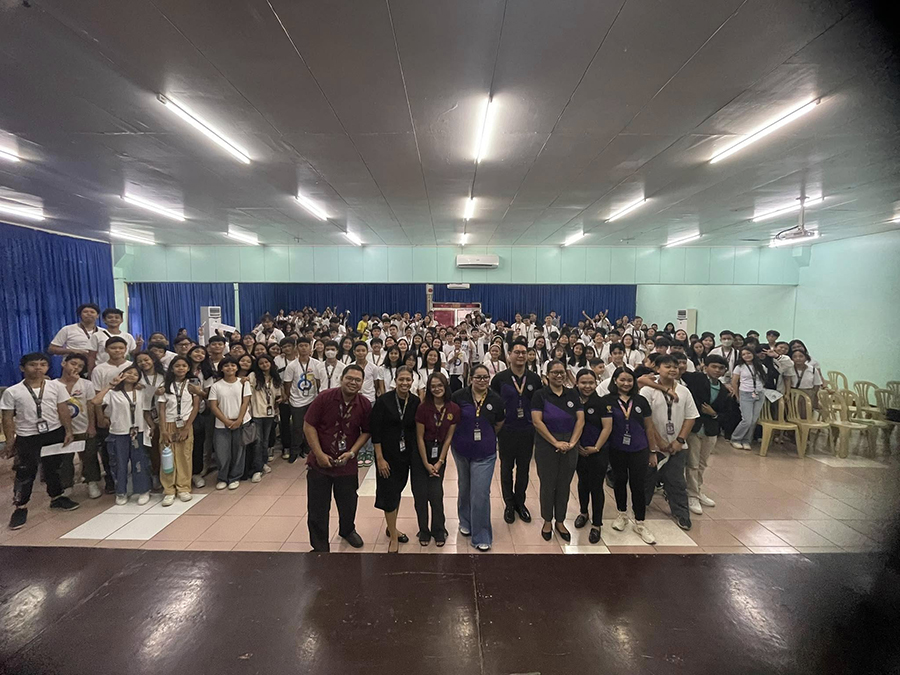By Mikee Natinga Norico

CPU JHS Grade 10 students, along with faculty, staff, and speakers, pose for a group photo after attending the informative “KASANAGAN” lecture forum on bullying and harassment protection.
In a proactive move to equip Junior High School students with knowledge on their rights and legal protection against bullying and harassment, the Office of the Vice President for Student Affairs, in collaboration with the CPU Legal Aid Clinic and the High School Guidance Services, conducted “KASANAGAN: Bites Can Bite – Stay Safe Online” on April 3, 2025, at the EMC Conference Room.
The event featured a full-day series of interactive lectures spearheaded by student practitioners from the CPU College of Law’s Clinical Legal Education Program (CLEP). A total of four successive sessions were conducted throughout the day, with students divided by grade level. While the audience varied per session, the same two key topics —Republic Act No. 10627 (Anti-Bullying Act of 2013) and Republic Act No. 11313 (Safe Spaces Act or “Bawal Bastos” Law)—were discussed in each one to ensure that all Junior High School students received equal access to vital legal knowledge.

CPU JHS Grade 9 students, along with faculty, staff, and speakers, gather for a group photo following their participation in the enlightening “KASANAGAN” lecture forum on bullying and harassment protection.
CPU JHS Grade 8 students, together with faculty, staff, and speakers, pose for a group photo after completing the “KASANAGAN” forum focused on bullying and harassment awareness.
Highlighting the importance of recognizing and addressing various forms of bullying—physical, emotional, verbal, social, gender-based, and cyberbullying—the first topic broke down the provisions of the Anti-Bullying Act. Students learned how bullying often occurs not only on school grounds but also in digital spaces. The discussion also provided practical steps for victims and bystanders, including how to report incidents, secure digital evidence, and block or disengage from bullies online.
The second topic focused on the Safe Spaces Act, educating students about gender-based sexual harassment (GBSH) and the various environments where it may occur—including streets, schools, public transportation, online platforms, and other public areas. CLEP student speakers emphasized that even minors may be held accountable for committing acts of GBSH and could face serious school-level consequences such as expulsion or withholding of diplomas.
CPU JHS Grade 7 students, accompanied by faculty, staff, and speakers, gather for a group photo after attending the impactful “KASANAGAN” lecture forum on bullying and harassment protection.
Each session included an open forum where students were encouraged to ask questions and seek clarifications, followed by an interactive quiz with prizes to reinforce the concepts discussed. Sample questions included identifying types of bullying, understanding cyberbullying platforms, and recognizing the effects of harassment on individuals.
The program concluded with messages of encouragement and reflection: Ma’am Denah Babas led the closing remarks and prayer for Grades 8 and 10, while Sir Janos Ecate gave the final message for Grades 7 and 9.
“KASANAGAN: Bites Can Bite – Stay Safe Online” stands as a testament to CPU’s commitment to fostering a safe and informed learning environment. Through legal literacy and awareness, the initiative aims to cultivate a culture of respect, accountability, and protection for all students—both within and beyond campus grounds.


